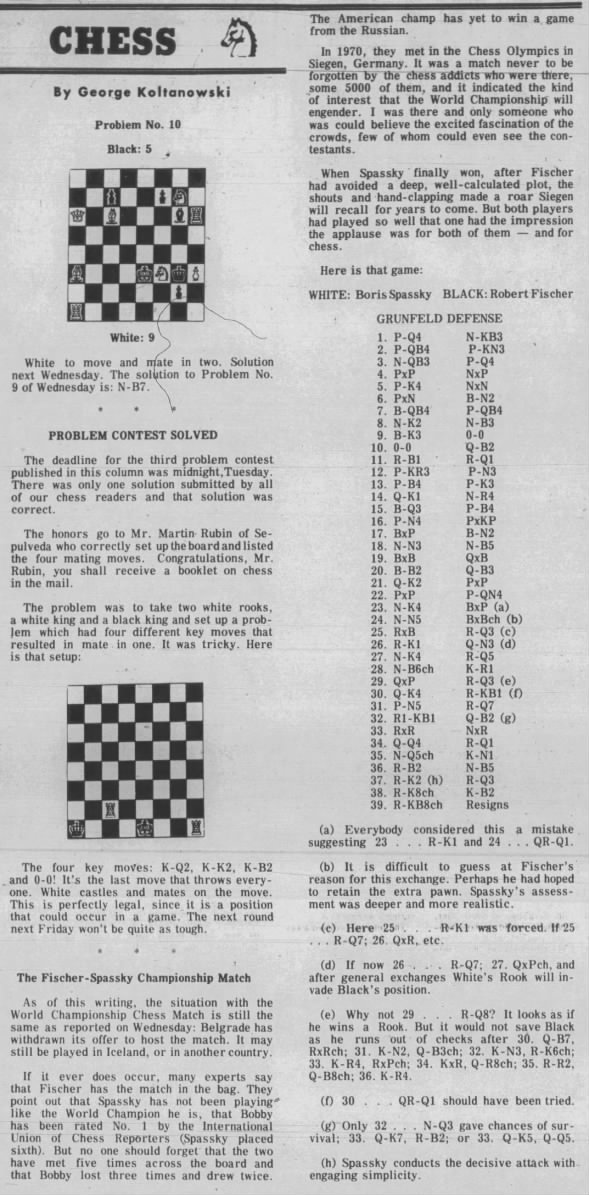< Prev Index Next >
 Chess by George Koltanowski Fri, Apr 21, 1972 – 4 · The Signal (Santa Clarita, California) · Newspapers.com
Chess by George Koltanowski Fri, Apr 21, 1972 – 4 · The Signal (Santa Clarita, California) · Newspapers.com
The Fischer-Spassky Championship Match
As of this writing, the situation with the World Championship Chess Match is still the same as reported on Wednesday: Belgrade has withdrawn its offer to host the match. It may still be played in Iceland, or in another country.
If it ever does occur, many experts say that Fischer has the match in the bag. They point out that Spassky has not been playing like the World Champion he is, that Bobby has been rated No. 1 by the International Union of Chess Reporters (Spassky placed sixth). But no one should forget that the two have met five times across the board and that Bobby lost three times and drew twice. The American champ has yet to win a game from the Russian.
In 1970, they met in the Chess Olympics in Siegen, Germany. It was a match never to be forgotten by the chess addicts who were there, some 5000 of them, and it indicated the kind of interest that the World Championship will engender. I was there and only someone who was could believe the excited fascination of the crowds, few of whom could even see the contestants.
When Spassky finally won, after Fischer had avoided a deep, well-calculated plot, the shouts and hand-clapping made a roar Siegen will recall for years to come. But both players had played so well that one had the impression the applause was for both of them — and for chess.
Here is that game:
(a) Everybody considered this a mistake suggesting 23 … R-K1 and 24 … QR-Q1.
(b) It is difficult to guess at Fischer's reason for this exchange. Perhaps he had hoped to retain the extra pawn. Spassky's assessment was deeper and more realistic.
(c) Here 25 … R-K1 was forced. If 25 … R-Q7; 26. QxR, etc.
(d) If now 26 … R-Q7; 27. QxPch, and after general exchanges White's Rook will invade Black's position.
(e) Why not 29 … R-Q8? It looks as if he wins a Rook. But it would not save Black as he runs out of checks after 30. Q-B7, RxRch; 31. K-N2, Q-B3ch; 32. K-N3, R-K6ch; 33. K-R4, RxPch; 34. KxR, Q-R8ch; 35. R-R2, Q-B8ch; 36. K-R4.
(f) 30 … QR-Q1 should have been tried.
(g) Only 32 … N-Q3 gave chances of survival; 33. Q-K7, R-B2; or 33. Q-K5, Q-Q5.
(h) Spassky conducts the decisive attack with engaging simplicity.






















